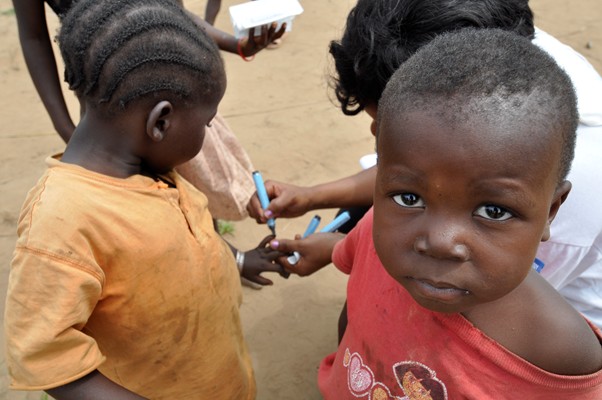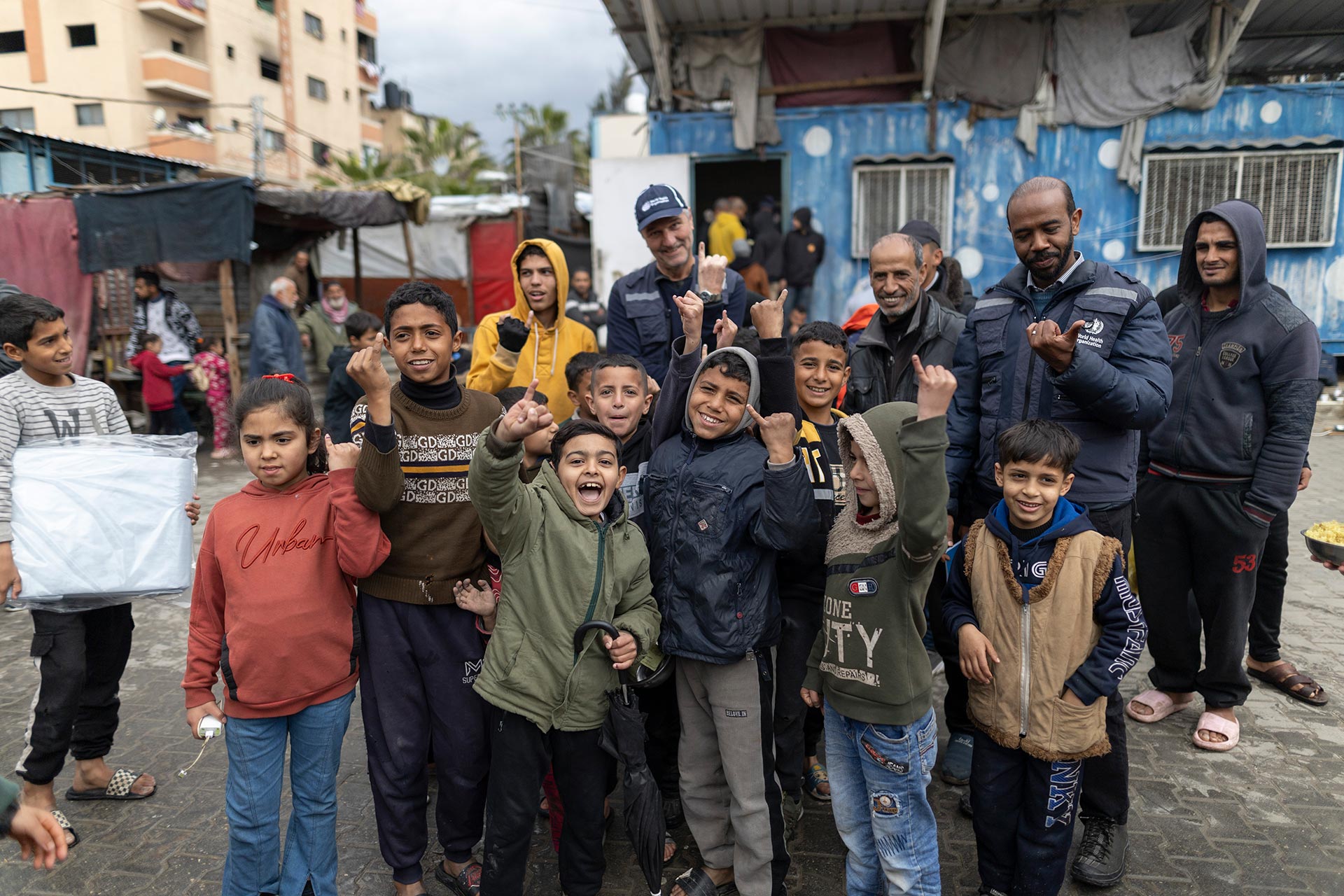Independent Monitoring Board report

Christine Lamoureux/WHO
The report of the 30 June-1 July meeting of the Independent Monitoring Board (IMB) affirms that polio eradication can be achieved in the near-term, but that ‘this will not happen if things continue as they are.’
In particular, the IMB expresses concern at the situations in DR Congo, Chad and Angola, and the continuing increase in cases in Pakistan.
The IMB underscores ‘7 important positive signs’ which – if achieved by end 2011 – would affirm that the programme is back on track to interrupt all polio transmission by end-2012:
1. no recurrence of cases in India by end-2011;
2. interruption of transmission in Kano and the surrounding north-west areas of Nigeria by end-2011;
3. interruption of type 3 poliovirus globally by end-2011;
4. a major expansion in capacity and expertise in Chad and DR Congo, with independent monitoring, surveillance data and case numbers clearly reflecting the impact of this expansion by end-October 2011;
5. a clear decline in the number of cases in Pakistan in the second half of 2011, compared to the equivalent
period in 2010, with particular evidence that the National Emergency Action Plan is working in Sindh province;
6. no more ‘surprises’ with re-emergence of the disease in polio-free countries; and,
7. a decline in field reports suggesting poor or variable quality of vaccination campaigns and surveillance, and/or
inadequate local leadership.
The IMB also expresses serious concern at the ongoing global funding gap, calling it ‘deadly serious’, and highlighting that – although the GPEI has long standing support from a core group of partners – it is neither right nor sustainable that the burden of financing should rest disproportionately on a narrow funding base. The Board concludes that there are a number of richer countries that have called for polio eradication, but have barely supported it financially.
The GPEI welcomes the findings and recommendations of the IMB. The heads of the spearheading partner agencies – the World Health Organization (WHO), Rotary International, the US Centers for Disease Control and Prevention (CDC) and UNICEF – and the Bill & Melinda Gates Foundation, will over the coming weeks discuss the report and its implications, and commit to specific actions to further support countries’ eradication efforts.
The IMB was established in 2010 at the request of the Executive Board of WHO and the World Health Assembly, to monitor progress against the milestones of the GPEI Strategic Plan 2010-2012.



